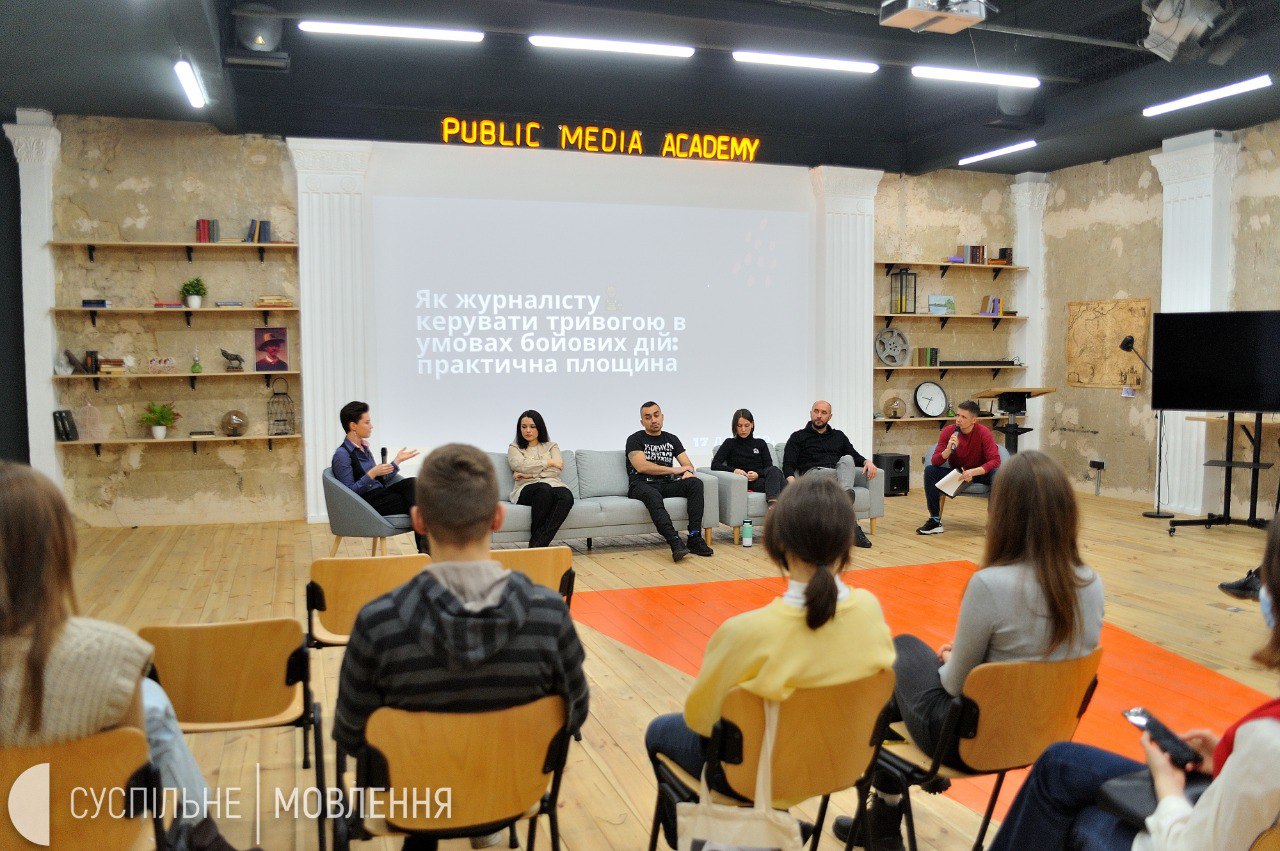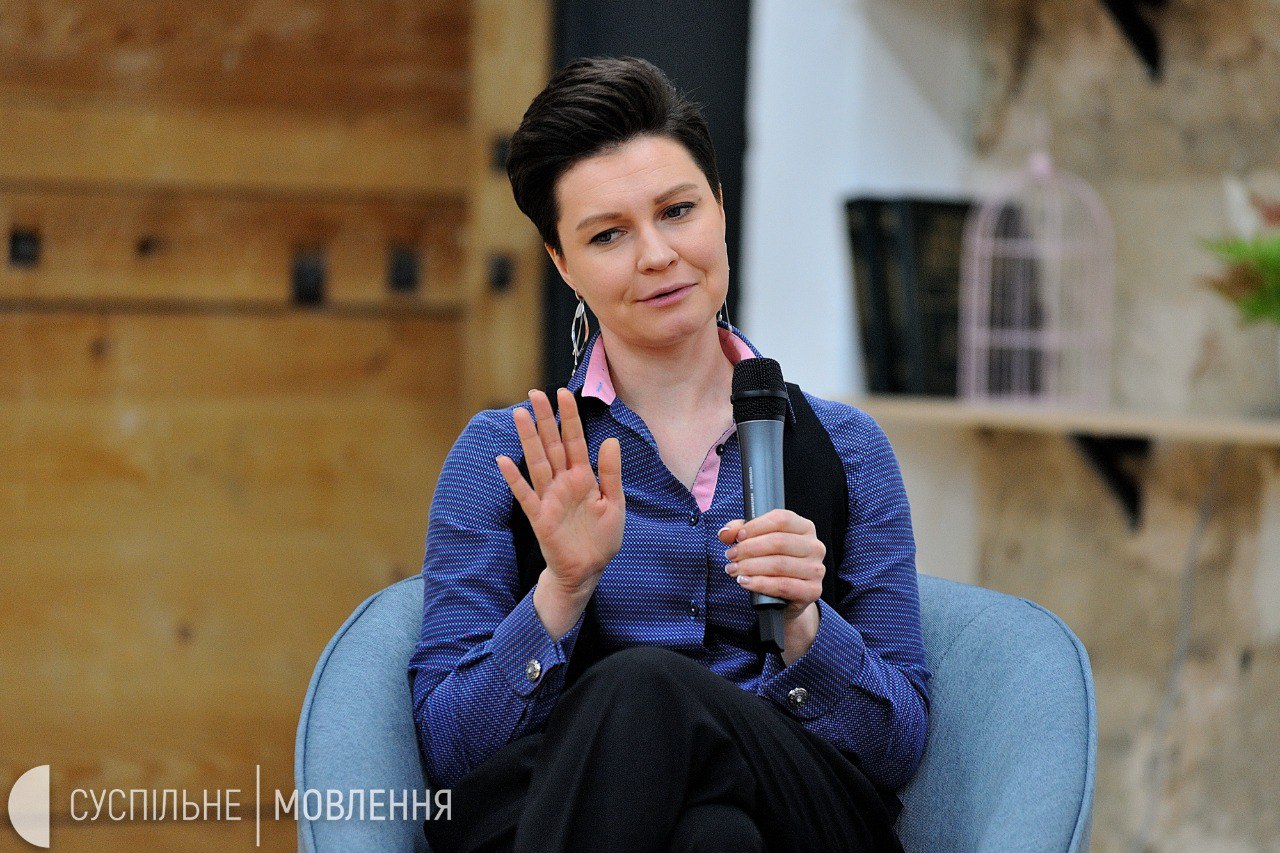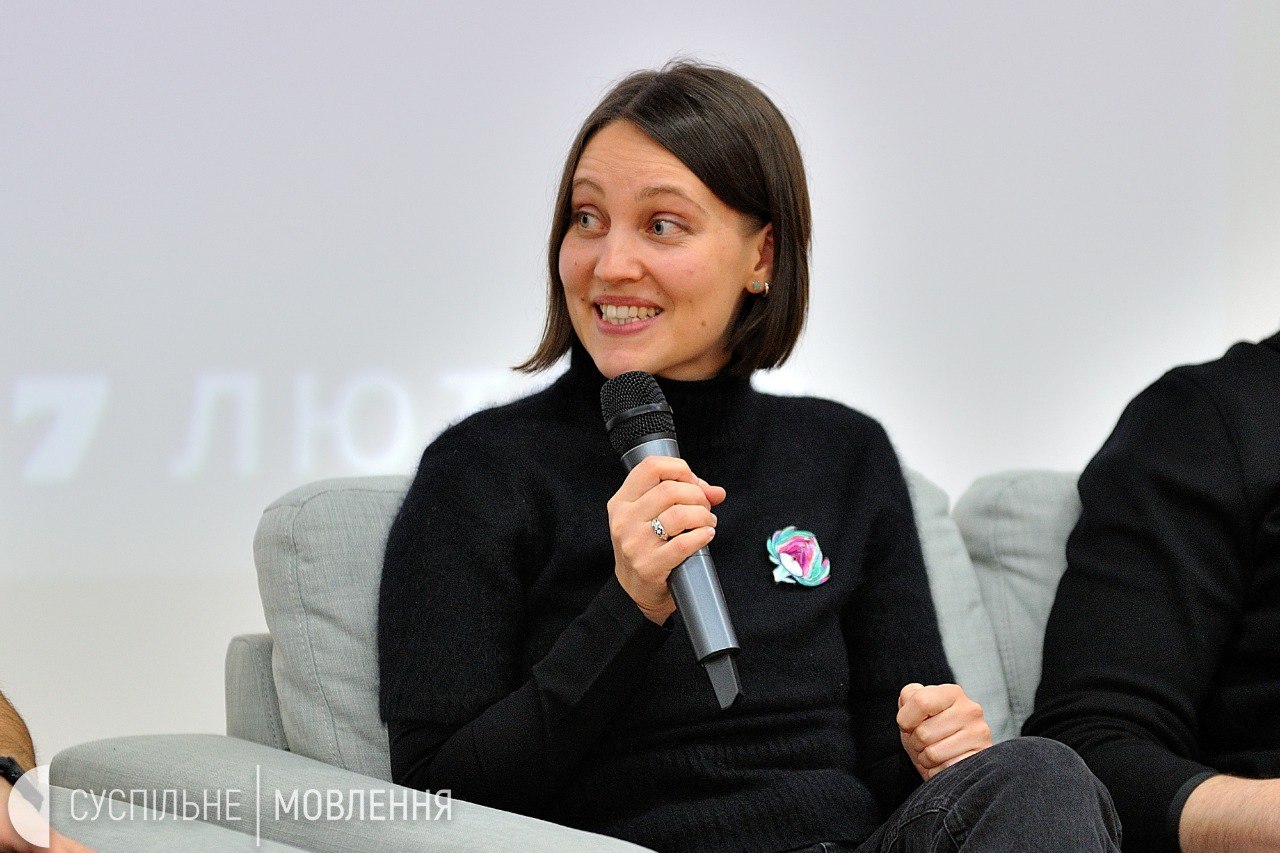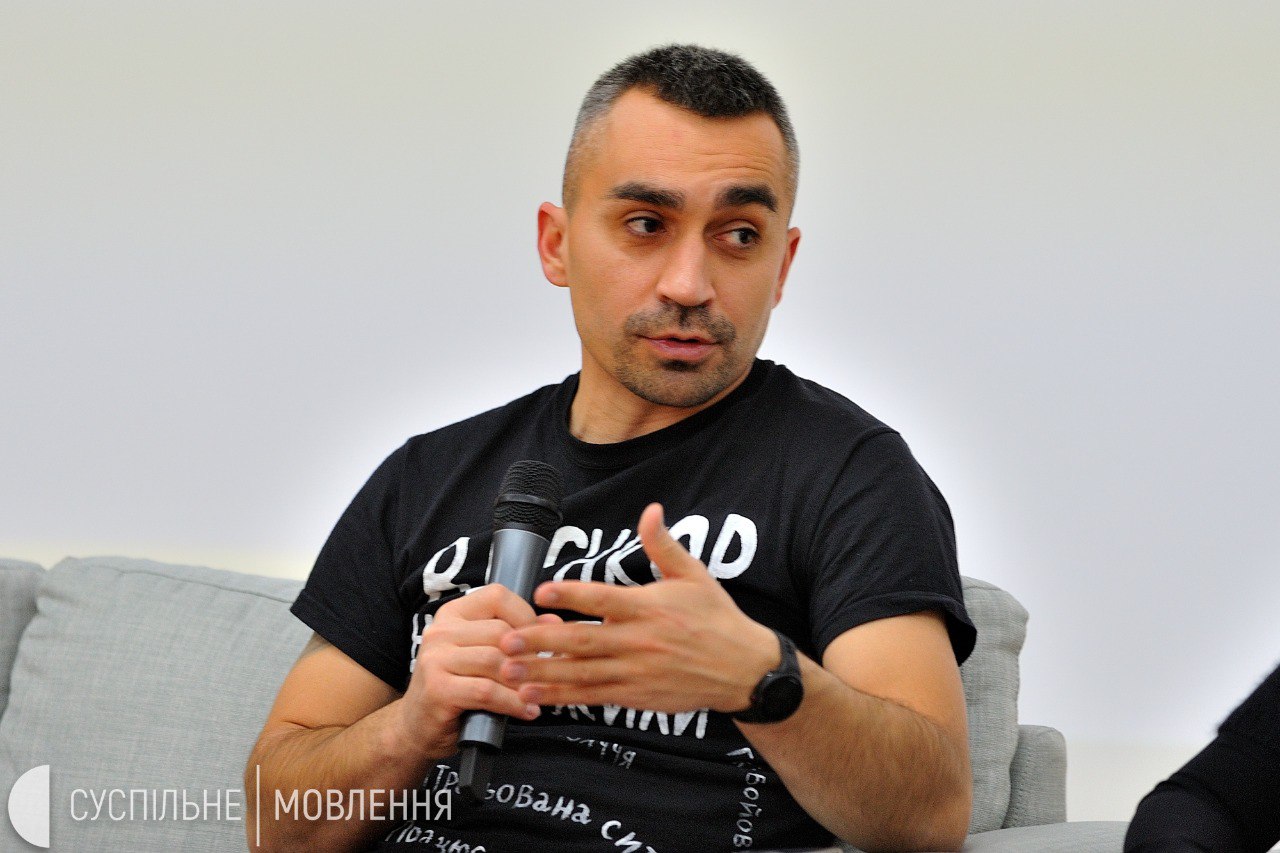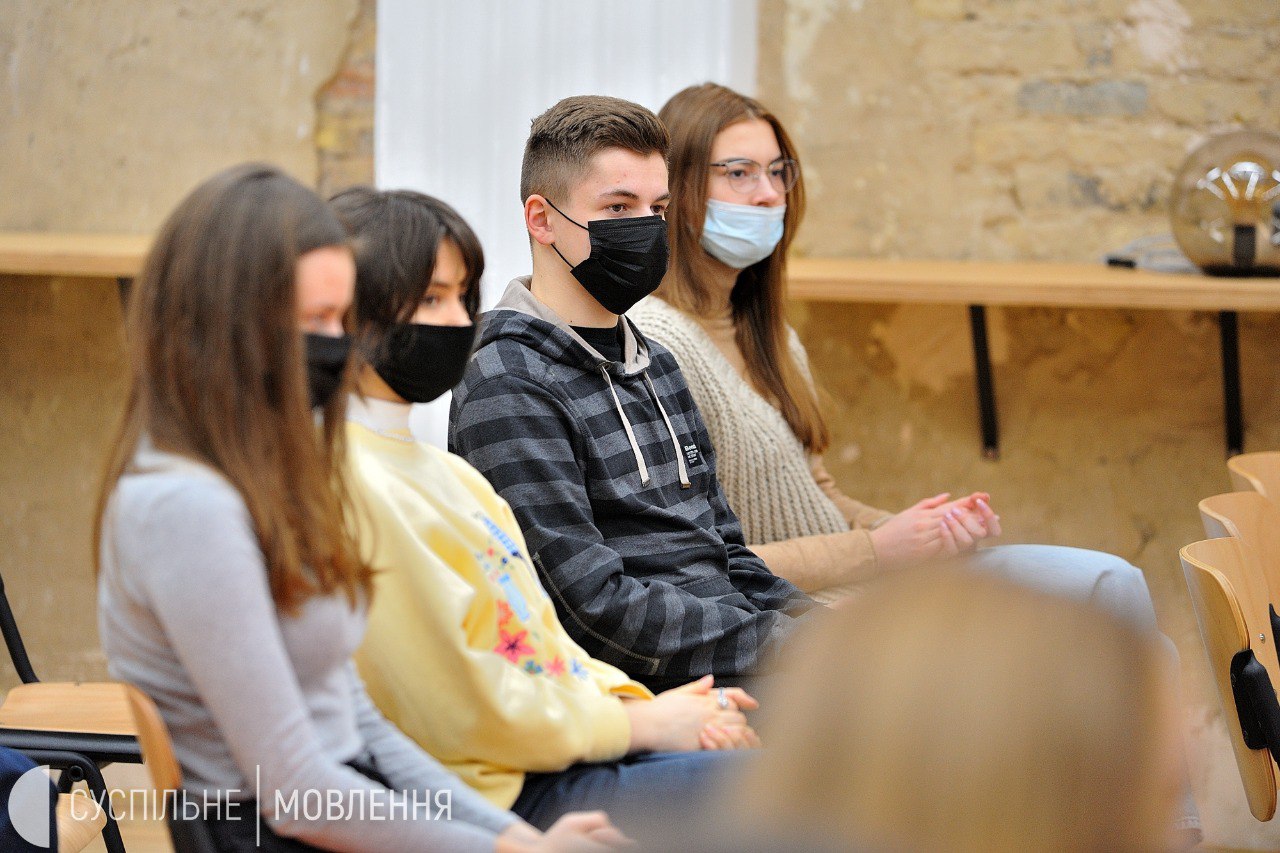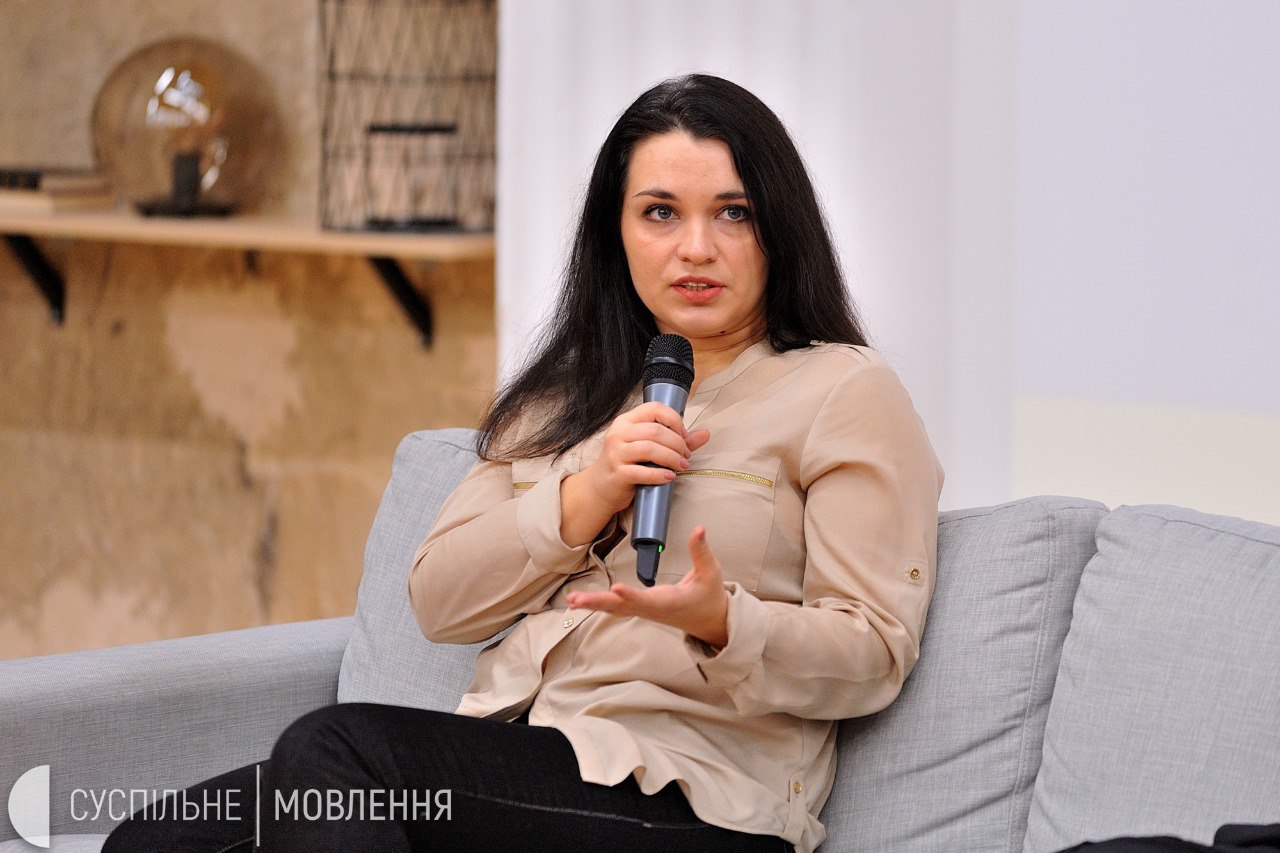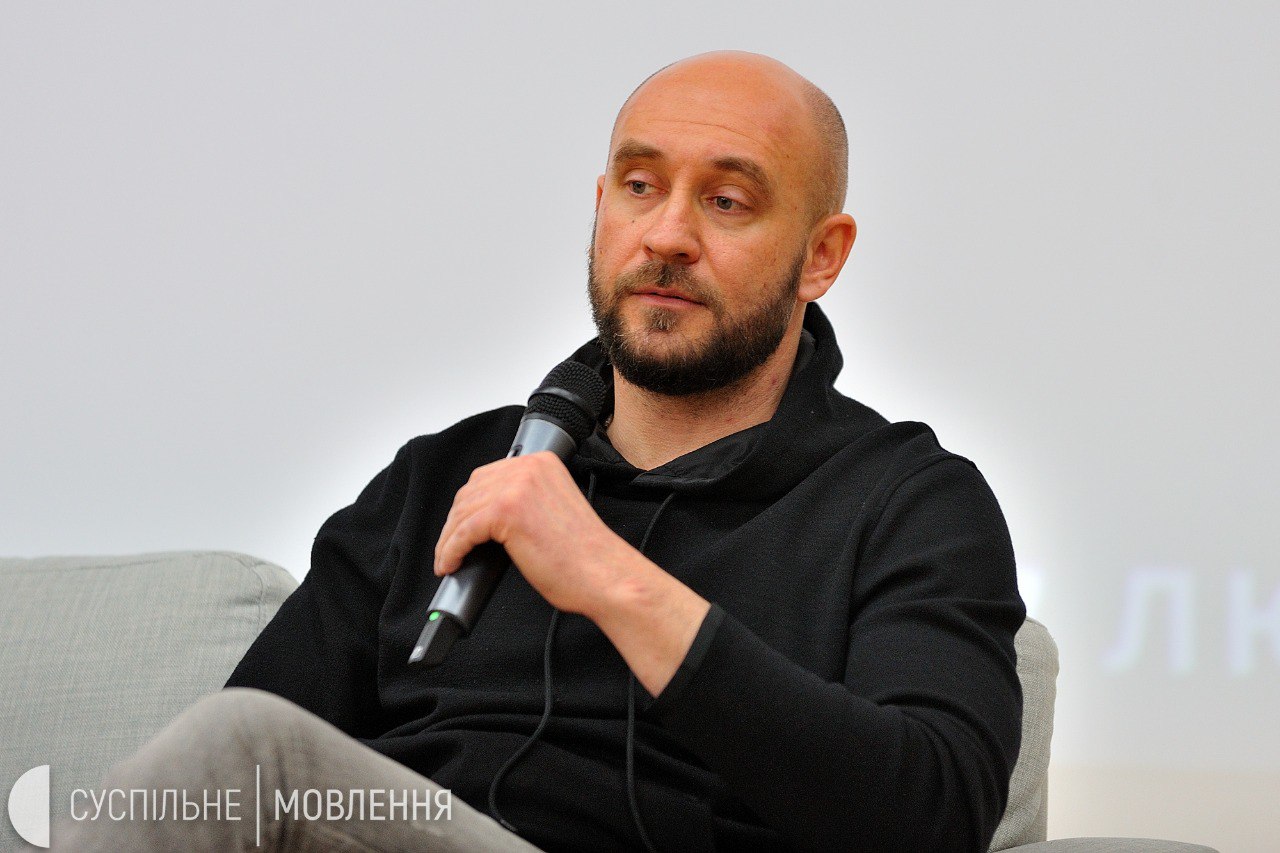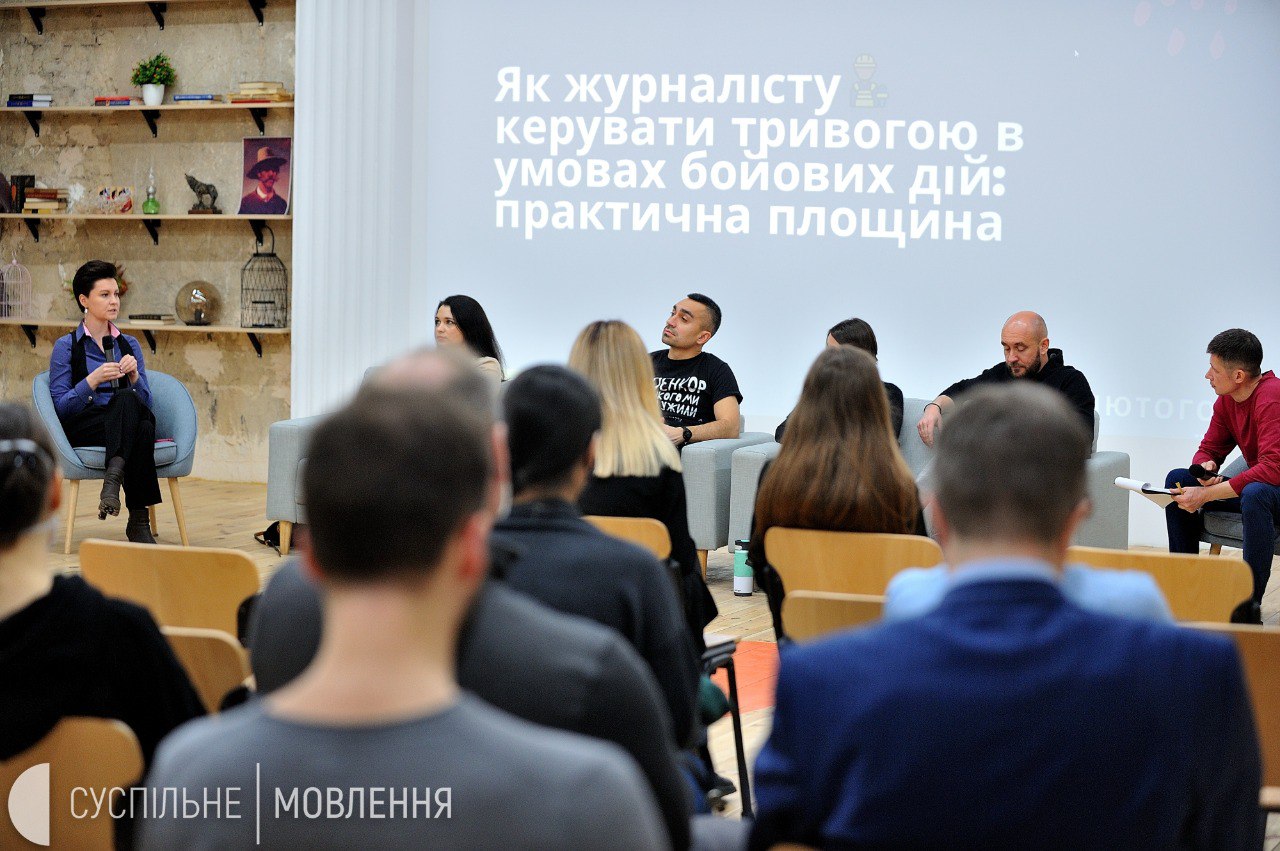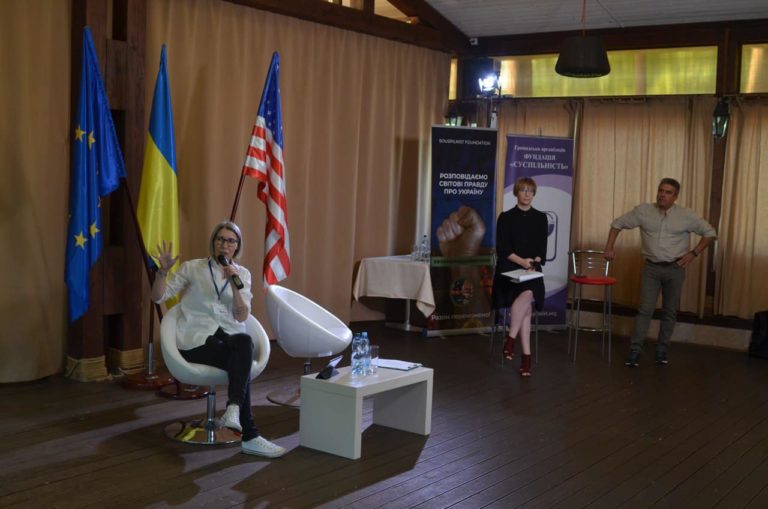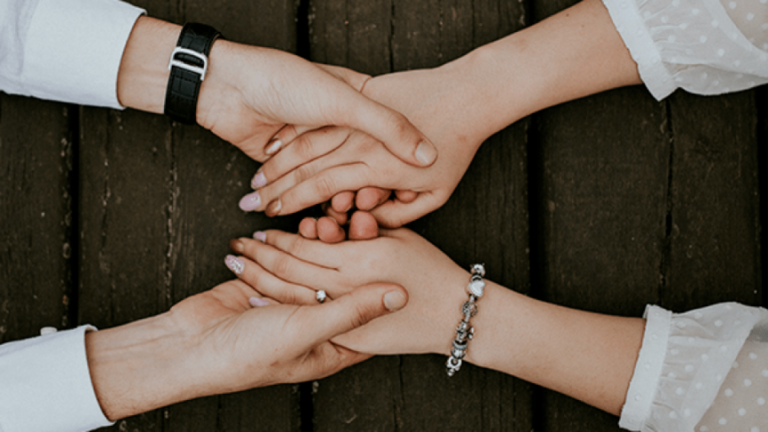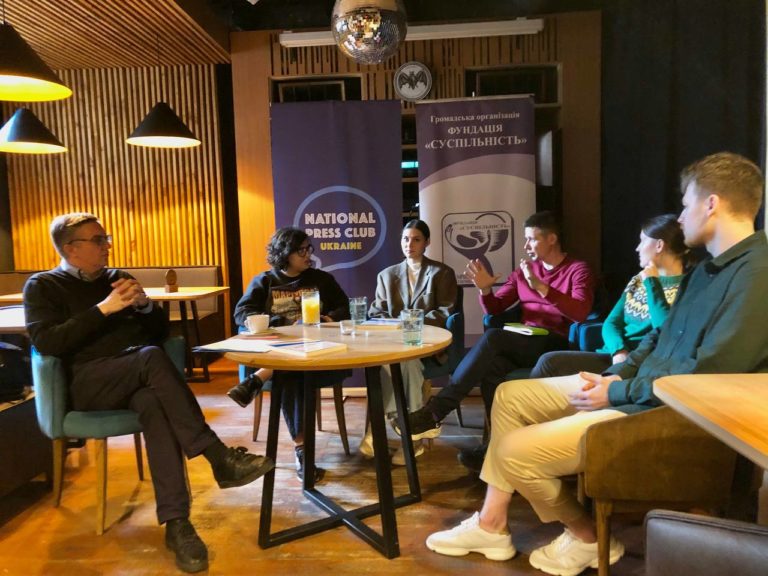One of the effective ways to help you adapt to and act in new conditions is to follow the behavior of those who already have such experiences, gradually improving your own behavior patterns and finding what works best for you.
Ukrainian journalists are working within contexts where doing your work in combat conditions might become a reality any day. Military correspondents and founders of the mental program “12 Months of Resilience” discussed how to keep on working well and support yourself and others during the meeting “How journalists can cope with anxiety in combat conditions: the practical aspect” organized by Souspilnist Foundation in partnership with UA:PBC.
Yevheniia Podobna, editor-in-chief for the UA:PBC documentary programs, Roman Bochkala, a journalist covering military and civil conflicts around the world, Oleksandr Makhov, a settler from Luhansk and a combat veteran in the east of Ukraine, Yevheniia Kytayiva who has covered international events including in Nagorno-Karabakh, and Anastasiia Nizhnik, author of mental health programs for journalists at Souspilnist Foundation with experience of working at a hospital with the wounded in action, took part in the discussion.
The moderator was Andriy Sydorenko, head of mental health programs for journalists at Souspilnist Foundation.
The main thing for journalists in today’s reality is to decide what they will do if the question of working under occupation/escalation arises. If you choose to take part in action or stay in a place surrounded by Russian troops, it is important to understand the conditions in which you will have to work, and why it is important to you:
Military correspondents should think ahead, stay focused, understand potential risks and have escape routes, including contacts of those people who can help in specific situations, Yevheniia Kytayiva noted.
The first “support group” for journalists is your camera person with whom you work together (for TV people), and contact persons in the rear, “on the mainland.”
Your important contacts should include the numbers of service members, territorial defense representatives, doctors, volunteers, drivers, and also colleagues with whom it is advisable to keep in touch in the peer-to-peer format.
I can’t recall a single case where journalists working in the east of Ukraine acted competitively. Talking about military correspondents, we’re talking about brotherhood or sisterhood, friendly relations and mutual support, Roman Bochkala noted.
This is one of the factors helping military journalists exhibit psychological resilience.
Among the practices that help military correspondents bring down anxiety, the journalists named:
- critical evaluation of risks;
- physical activities;
- working on routine tasks;
- division between work and leisure.
There was a time when I worked a lot exhausting myself: starting in 2014, I kept going to the frontline as a journalist, and later as a serviceman. But there was a moment when I realized that such a rhythm was affecting me in a bad way, including my ability to work. So I planned “my” days or hours when I let myself rest: take a shower, talk to someone I love, or eat. It does help me, Oleksandr Makhov noted.
Anastasiia Nizhnik added that the principle “breather – look – move” also helps in critical situations. First, it is important to focus on your breathing trying to catch it, then to find objects having seven rainbow colors around you or simply focus on details surrounding you, and at least stretch your fingers and facial muscles or do some squats.
All journalists shouldn’t forget that they’re fighting us also with information. Psychological information operations are very serious weapons and we’re one of the most important targets for our enemies. It’s therefore important to understand that journalists have a great responsibility. We shouldn’t give in to provocations or spread panic. Let’s keep this in mind, we can not only regulate ourselves but also help society live through these hard times, Yevheniia Podobna summed up.
To learn how to organize your newsroom’s work in combat conditions, ensure journalists’ physical and psychological safety, and for more practical advice, watch a recording of the meeting on:
